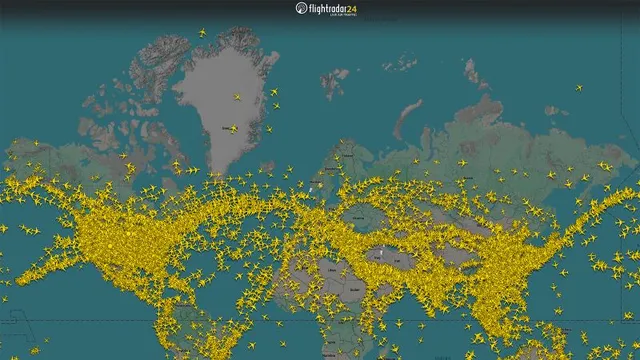
Major airlines suspend flights to Middle East amid escalating conflict
2025-06-20 00:00- The conflict between Israel and Iran is causing significant disruptions to air travel, leading many airlines to suspend flights.
- Airlines, including United and American, have paused operations to various destinations in the Middle East amid ongoing military tensions.
- Travelers are likely to face extended journey times, cancellations, and potential increases in airfare due to the crisis.
Express your sentiment!
Insights
The ongoing conflict between Israel and Iran has drastically impacted air travel in the Middle East. Major airlines, including United Airlines and American Airlines, have suspended flights to destinations in the region due to the intensified hostilities. This includes suspensions of daily flights from Newark Liberty International Airport to Dubai and flights from Philadelphia International Airport to Doha, Qatar. The closure of airspace over Israel, Jordan, Iran, and Iraq is causing major disruptions in flight routes, leading to extended journey times and affecting connecting flights across several countries. As the situation escalates, the European Union Aviation Safety Agency (EASA) has issued warnings about the significant risks associated with military operations in the area. This has resulted in widespread cancellations and unexpected delays, particularly for flights passing through airspaces deemed high-risk. The situation remains fluid, with ongoing military operations posing continuous threats to civil aviation, leading many travelers to reconsider their travel plans. Airlines have been monitoring the developments closely, prioritizing safety. The conflict's implications extend beyond immediate cancellations. They have repercussions on travel plans for hundreds of thousands of passengers attempting to route through affected areas. Individuals planning to travel to destinations such as Dubai, Qatar, and other nations face uncertainty as airlines may make last-minute changes to their schedules. The situation is compounded by the fact that rising tensions often lead to increased operational costs for airlines, raising questions about potential fare increases in the near future. As military operations increase, oil prices are expected to escalate, which can eventually be reflected in ticket prices. In response, airlines tend to hedge their fuel costs, but ongoing military actions and airspace restrictions have immediate and direct impacts on travel options, forcing airlines to adjust schedules and operations frequently.
Contexts
The Israel-Iran conflict has been a significant factor influencing global oil prices, given both countries' strategic positions in the Middle East and their roles in the global oil market. The ongoing tensions between Israel and Iran create instability in a region that is critical to oil supply chains. Fluctuations in oil prices are often a direct consequence of geopolitical events that threaten production and transportation routes. This conflict exacerbates fears of supply disruptions, which in turn can lead to speculative trading and contribute to increased volatility in oil prices. Investors closely watch developments in this conflict, as strikes, military engagements, or escalations of rhetoric can swiftly lead to rises in crude oil prices due to anticipated supply shortages or increased risk premiums. One of the significant impacts of the Israel-Iran conflict on oil prices is linked to Iran's oil production and its ability to export oil. Economic sanctions imposed on Iran have historically resulted in reduced production capacity. When tensions escalate, there is often a corresponding rise in oil prices as traders react to potential shortfalls. Conversely, any de-escalation in the conflict can lead to market stabilization and a decrease in oil prices as fears of disruption wane. The intertwining of military actions and oil production capabilities shapes investor sentiment and can lead to sudden changes in market dynamics, impacting both consumer prices and global economic stability. Furthermore, the geopolitical landscape surrounding this conflict also involves other key players such as the United States and Saudi Arabia, each with their interests and strategies related to oil. For example, U.S. policies towards Iran can have ripple effects through oil markets, with sanctions leading to increased tensions and price surges, while diplomatic engagements may ease pressures and lower prices. Similarly, Saudi Arabia, which rivals Iran in terms of oil production, may adjust its output in response to changes in the geopolitical situation, thereby influencing global supply and price levels. The interplay of these relationships underscores the complexities of the oil market amid regional conflicts. Overall, the ongoing Israel-Iran conflict presents a nuanced challenge for global oil prices. Market participants remain vigilant regarding developments and interpretations of statements made by both sides. The potential for military escalation invites speculation and risk aversion, resulting in sharp price reactions. As the conflict continues to evolve, its implications for oil supply and global economic health will require close monitoring to anticipate shifts in price trends and their repercussions on the broader economy.